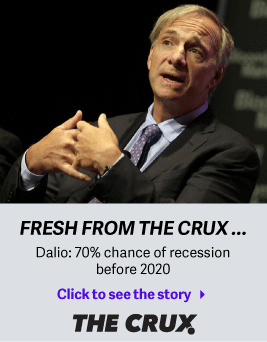| Home | About Us | Resources | Archive | Free Reports | Market Window |
Your Financial Adviser Is Lying to YouBy
Monday, February 26, 2018
I get so mad, I just want to scream...
I HATE IT when I get letters like the one below... because I hate it when people try to mislead our subscribers.
You see, one of our readers recently sent us a question.
And my answer is, "Your financial adviser is lying to you."
Here's what the subscriber wrote to us:
It is NOT true. If you're not familiar, KraneShares provides the top exchange-traded funds (ETFs) when it comes to investing in China. I've written about two of its ETFs as ways to invest in China – the KraneShares Bosera MSCI China A Fund (KBA), and the KraneShares CSI China Internet Fund (KWEB).
The statement from the Ameriprise Financial adviser (if he really said that – I hope he didn't) borders on defamation. It's unlikely that Ameriprise is privy to information about KraneShares that nobody else knows.
More likely, Ameriprise simply doesn't want to sell the two KraneShares funds I've written about. And the financial adviser made up a reason why.
Nothing is wrong at KraneShares. And nothing is wrong with these two index funds that have a combined TWO BILLION dollars invested in them. They are not leveraged. They are two ordinary ETFs.
So what's going on here?
Barron's newspaper addressed this question two weeks ago, with a story called "The Latest Casualty in the ETF Fee War – Objective Advice."
The Barron's article explains that brokerage firms are reluctant to sell funds that they don't make much money on...
Barron's doesn't mention Ameriprise in particular. This is just a relatively new industry-wide issue for all brokerage firms. If the brokerage firm doesn't make money by selling that ETF, then it doesn't "approve" selling it. Here's the way these relatively new conversations go:
Saying it's "unsuitable" is bad enough. That's not telling the customer the whole story of why the firm won't sell the fund. (Besides, it raises the question – "unsuitable for whom?") But warning the customer that there are "management problems" – when there aren't management problems – is far worse.
Some firms have found other, more honest solutions...
Fidelity, for example, doesn't make much money on Vanguard funds. Instead of dropping Vanguard funds and making up excuses, early this year, Fidelity instituted a 0.05% fee on Vanguard funds held in 401(k) plans.
So what should you do if a brokerage firm comes back to you and tells you a simple, ordinary index fund is "unsuitable"?
I would suggest checking with other brokerage firms to see if they can buy it for you.
It might be time to change brokers...
Good investing,
Steve
Further Reading:
"Never, ever allow a broker to be in charge of the conversation," Mark Ford says. "You're the boss. He should listen to you." Check out his classic essay about why you shouldn't be "loyal" to your broker right here.
"Your broker might scoff at this..." Dave Eifrig writes. If you deal with a broker or financial adviser – and if you use stops to protect your investments – make sure you're not falling prey to this mistake. Read more here.
Market NotesNEW HIGHS OF NOTE LAST WEEK
U.S. Steel (X)... steel
Steel Dynamics (STLD)... steel
Raytheon (RTN)... "offense" contractor
Palo Alto Networks (PANW)... cybersecurity
Proofpoint (PFPT)... cybersecurity
Interactive Brokers (IBKR)... online brokerage
Moody's (MCO)... credit ratings
M&T Bank (MTB)... regional bank
PNC Financial Services (PNC)... regional bank
SunTrust Banks (STI)... regional bank
Green Dot (GDOT)... prepaid debit cards
Intuit (INTU)... TurboTax, QuickBooks
Salesforce.com (CRM)... software for businesses
Workday (WDAY)... cloud software
Adobe Systems (ADBE)... software
Nvidia (NVDA)... chipmaker
GoDaddy (GDDY)... Internet domain names
Shutterfly (SFLY)... digital photos, prints
Amazon (AMZN)... "FANG" stock
Shopify (SHOP)... e-commerce powerhouse
Grubhub (GRUB)... on-demand food delivery
Bloomin' Brands (BLMN)... casual-dining restaurants
Dine Brands Global (DIN)... IHOP, Applebee's
Domino's Pizza (DPZ)... pizza
Live Nation Entertainment (LYV)... concerts
Madison Square Garden (MSG)... concerts and sports
Coty (COTY)... cosmetics
Estée Lauder (EL)... cosmetics
Weight Watchers (WTW)... weight-loss help
NEW LOWS OF NOTE LAST WEEK
Campbell Soup (CPB)... soups, sauces, baked goods
Kraft Heinz (KHC)... ketchup, cheese, and more
Apache (APA)... oil and gas
Cemex (CX)... cement
Nielsen (NLSN)... data and analytics
|
Recent Articles
|



